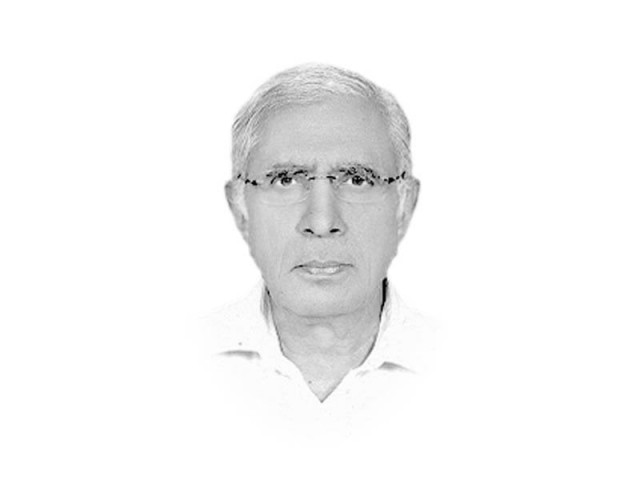Why Doha?
The talks can be attributed to US's altruistic moods to save Kabul from a repeat of blood turmoil of 1988.

The writer is Executive Editor of The Express Tribune
It is worth recalling that President Barack Obama announced the phased withdrawal of his troops from Afghanistan the very next month after Osama’s demise, asserting that Afghanistan no longer represented a terrorist threat to the United States. According to one US source, by 2012, only 100 al Qaeda fighters were left in Afghanistan. In retrospect, it looks more like a manhunt rather than a war, as former US president George W Bush had issued a number of warnings soon after 9/11 to Kabul, demanding the handing over of Osama, which the Taliban continued to refuse to accede. Even earlier, President Bill Clinton had authorised the CIA to capture Osama to stand trial for the 1998 US embassy bombings in Africa. On August 20, 1998, cruise missiles launched across Pakistani air space, by US Navy ships in the Arabian Sea, struck Osama’s training camps near Khost, narrowly missing him by a few hours. Next, in 1999, the CIA, in collaboration with the ISI and the MI, had prepared a team of Pakistani commandos to infiltrate Afghanistan to capture or kill Osama, but the plan was aborted by General (retd) Pervez Musharraf after he staged a coup d’etat; in 2000, the CIA had fired a rocket-propelled grenade at a convoy of vehicles in which Osama was travelling through the mountains of Afghanistan, hitting one of the vehicles but not the one in which he was in. So, in the final analysis, it seems the so-called war was actually a 12-year long hunt for Osama and against al Qaeda and not against the Taliban. The Taliban, seemingly, just came in the way as they justifiably mounted a bitter resistance against the occupiers.
Now that the Afghan endgame has entered what certainly seems to be its final dash to the finish line, let us approach the crucial round with our feet firmly on ground and without, of course, nursing our usual grandiose hegemonic notions. There are a number of compelling reasons why it is not possible for Pakistan to stay away from Doha. The first of these reasons is geography: a 2,640 kilometre-long porous border called the Durand line separates the two countries. The second is political-cum-social: the line cuts through the Pashtun tribal belt and further south through the Balochistan region, politically dividing ethnic Pashtuns and Baloch, who live on both sides of the border, which Afghanistan does not recognise. And the third is legal: Pakistan is obliged under UN convention on law of sea to provide Afghanistan, a landlocked country, a right of access to and from the sea without taxation of traffic. Pakistan signed a transit trade treaty with Afghanistan in 1950, giving it the right to import duty free goods through Karachi. Also, let the world not forget that we have been hosting around three million Afghan refugees since the late 1970s. In 1988, the US left the region, handing over to Pakistan, the sole responsibility of bringing peace and stability to war-torn Afghanistan. We made a mess of it. This time, the US seems contemplating bringing in India as well on board to ensure that after withdrawal, it becomes a regional responsibility to see that Kabul does not, once again, descend into bloody chaos.
Published in The Express Tribune, June 26th, 2013.
Like Opinion & Editorial on Facebook, follow @ETOpEd on Twitter to receive all updates on all our daily pieces.















COMMENTS
Comments are moderated and generally will be posted if they are on-topic and not abusive.
For more information, please see our Comments FAQ